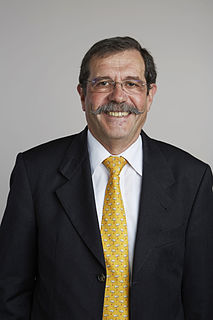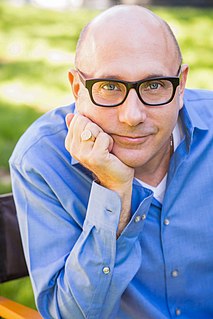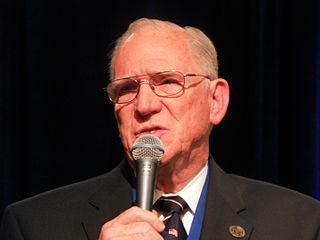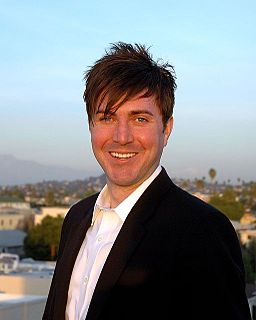A Quote by Huston Smith
Ancient wisdom and quantum physicists make unlikely bedfellows: In quantum mechanics the observer determines (or even brings into being) what is observed, and so, too, for the Tiwis, who dissolve the distinction between themselves and the cosmos. In quantum physics, subatomic particles influence each other from a distance, and this tallies with the aboriginal view, in which people, animals, rocks, and trees all weave together in the same interwoven fabric.
Quote Topics
Aboriginal
Ancient
Ancient Wisdom
Animals
Bedfellows
Being
Between
Brings
Cosmos
Determines
Dissolve
Distance
Distinction
Each
Even
Fabric
Influence
Interwoven
Make
Mechanics
Observed
Observer
Other
Particles
People
Physics
Quantum
Quantum Mechanics
Quantum Physics
Rocks
Same
Subatomic Particles
Themselves
Together
Too
Trees
Unlikely
View
Weave
Which
Wisdom
Related Quotes
I've been very involved in this quantum holographic formalism and helping to explore it as explanatory of the very root of our perceptual capabilities. It is postulated, for example, that this very basic entanglement, at the quantum level, at the level of subatomic matter, is really a part of quantum mechanics.
In quantum mechanics there is A causing B. The equations do not stand outside that usual paradigm of physics. The real issue is that the kinds of things you predict in quantum mechanics are different from the kinds of things you predict using general relativity. Quantum mechanics, that big, new, spectacular remarkable idea is that you only predict probabilities, the likelihood of one outcome or another. That's the new idea.
String theory?[pause] It closed the conceptual gulp between relativity and quantum mechanics. It postulates that subatomic particles are not points, but strings, about one planck length long. The rate at which strings vibrate can generate the properties of all known particles. Huh? How did I know that?
'Participant' is the incontrovertible new concept given by quantum mechanics. It strikes down the 'observer' of classical theory, the man who stands safely behind the thick glass wall and watches what goes on without taking part. It can't be done, quantum mechanics says it...May the universe in some sense be 'brought into being' by the participation of those who participate?
Bohm's interpretation of quantum physics indicated that at the subquantum level, the level in which the quantum potential operated, location ceased to exist. All points in space became equal to all other points in space, and it was meaningless to speak of anything as being separate from anything else. Physicists call this property 'nonlocality.'
The quantum entered physics with a jolt. It didn't fit anywhere; it made no sense; it contradicted everything we thought we knew about nature. Yet the data seemed to demand it. ... The story of Werner Heisenberg and his science is the story of the desperate failures and ultimate triumphs of the small band of brilliant physicists who-during an incredibly intense period of struggle with the data, the theories, and each other during the 1920s-brought about a revolutionary new understanding of the atomic world known as quantum mechanics.





































